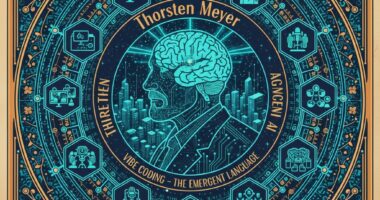AI signifies a major leap forward in technology, ready to bring manifold benefits to human society. For example, it’s on the cusp of enabling personalized healthcare remedies. Moreover, it’s set to revolutionize the fields of scientific research and e-commerce. Besides, it will be a key player in shaping global diplomacy. This article delves into the effects of AI on our daily existence. It will further probe into its role in pioneering new technological breakthroughs and its impact on everyday tasks.
AI Will Enable Truly Personalized Medicine
The use of AI for precision medicine is a big promise for healthcare. This technology can identify phenotypic differences in individuals based on their genetic profile. The biggest challenge is developing the right training datasets. Currently, there are a number of large datasets, but more need to be collected. AI algorithms can be trained using this data.
AI can predict a patient’s likelihood of developing a disease and help understand the environment in which a disease is likely to develop. It can also help educate medical professionals about early symptoms of diseases. And with the right tools, AI can even identify disease risks in patient populations.
AI can assist with a variety of tasks in health care, including drug and device design. It can also solve big data challenges, such as bridging disparate data sets. It can also analyze thousands of pharmaceutical compounds and treatments. With these tools, AI can help doctors make better patient treatment decisions.
The promise of AI for medicine is enormous. It can help improve routine workflows, speed up drug discovery, and help medical staff. It can also improve patient outcomes and make treatment more accessible and affordable. But there are many challenges to this goal. Still, AI is an important step towards achieving this goal.

The first step towards truly personalized medicine is to develop the right AI tools. Data science allows us to create multimodal patient data, and modern machine learning algorithms are powerful enough to combine this data into useful predictions. Fortunately, these algorithms are more accurate than ever and may even outperform humans. The challenge is finding the right target.
The regulatory framework for AI will affect clinical trials, commercial development, and the use of data in the EHR. Regulations must be established to ensure that these systems are safe and ethical. They also need to be transparent and involve patients. The development of artificial intelligence systems will require significant investment in research and development.
AI for personalized medicine is currently in the prototype stage, and further advancements need to be made to make them widely available. The next step is to create a robust regulatory framework, create models, and develop methods for analyzing data. A strong collaboration between AI and clinical teams is necessary to ensure seamless integration of data and build the most effective applications.
AI Will Transform the Scientific Research Process
Artificial intelligence (AI) in research presents both opportunities and challenges. Not only can AI analyze large amounts of data, but it can also simplify the scientific research process and increase research productivity. There are also some concerns about AI’s ability to replace human researchers. But AI is likely to benefit science in many ways, including increasing interdisciplinarity.
Ultimately, AI will transform the scientific research process by augmenting the human mind. It will also impact governance, ethics, and societal impact. As this technology becomes a key part of our world, scientists must have broad perspectives and the ability to integrate knowledge from various fields. This will enable them to make more informed decisions.
Using AI in scientific research is already changing the way scientists study the world. For instance, researchers at Stanford are using AI to map poverty in Africa, find safer rechargeable batteries, and study human behavior. They are also exploring the potential of AI in linguistics and public policy. AI has the potential to change everything from what we know about the human genome to how we communicate with others.
AI can also be used to improve human health. For example, it can help diagnose and treat disease by making predictions based on a person’s health history. It can also help clinicians better coordinate care and patient treatment programs. The possibilities are limitless, and AI is already progressing in this field.
AI is also capable of analyzing massive amounts of data. It can help scientists complete labor-intensive tasks in a fraction of the time. Its capabilities may have applications in various scientific fields, including Molecular Biology. In addition, AI could help us better understand the universe. Observations of the universe produce huge amounts of data. However, these data must be filtered to get rid of instrumental artifacts before real data can be analyzed. Using AI, machine learning algorithms will clean data and make it ready for further analysis.
While AI could be beneficial to scientists, it can also have negative consequences. It may disrupt jobs that humans deem to be low-skilled. The emergence of AI could lead to new forms of labour and a new economy. For academics, it may create a new form of employment.
AI Will Transform E-Commerce
The use of artificial intelligence to personalize shopping experiences is becoming increasingly prevalent. Many eCommerce retailers are working to improve the way they engage with consumers. One approach is conversational commerce, which brings together the Internet’s voice, written, and visual capabilities. By automating repetitive tasks, such as checking the status of an order, this technology can help retailers deliver outstanding experiences to their customers.
For example, an AI-powered assistant may be able to predict a customer’s needs based on how long they’ve been at a store. This new technology can help eCommerce retailers target the right people by providing relevant recommendations. For example, a company like Starbucks has invested heavily in AI to help it respond to customer needs.
Using AI for e-commerce can improve personalization and simplify the shopping experience. The software can analyze data from every touchpoint and build complete profiles of customers. It can also help segment audiences more finely than traditional methods. It can also recommend products based on the preferences of the consumer.
Moreover, AI for e-commerce helps businesses analyze data in real time, which is essential for short and long-term planning. Traditional marketing analysis is a blunt instrument when it comes to e-commerce. But with AI, data can be analyzed in real time, helping businesses make better decisions and improve their services.
AI for e-commerce is already used to help companies forecast demand and move stock. For instance, Rem ai has a forecasting app that uses machine learning algorithms to predict demand. It also takes external influences into account and predicts supply chain issues. These new tools are helping to accelerate the growth of e-commerce and their use is sure to continue.
The use of AI for e-commerce is already revolutionizing the way businesses do business. It brings customers ease, reduces costs, and boosts the top and bottom lines. If you want your business to thrive in this new era, it’s essential to adapt to the new developments in the industry.
AI Will Become a Pillar of Foreign Policy
AI is a major technology, and the US government is making progress in promoting an open international environment for AI. It is also pushing back against measures to localise data, ensuring that American companies can retain their competitive edge. It has also applied pressure in trade deals and informal ways to counter strategic competitors like China. AI will be a major tool in foreign policy, and the US is making efforts to make it a pillar of that policy.
With AI becoming more capable of making decisions and navigating international security, the United States and other like-minded countries will need to adapt current rules of international law and arms control to meet the new demands of AI. It will also need to develop new rules to regulate the use of AI.
AI will also change the way war planning is conducted. It will also change the way states and non-state actors operate in cyberspace. It will allow states to use the power of the internet and artificial intelligence to manipulate large groups and influence them. It can also be used for reconnaissance, profiling of target audiences, psychological operations, and more. AI will be a central pillar of geopolitics, and the world will need to develop strategies and policies to ensure that AI will not be misused for malicious purposes.
The EU and US have adopted a set of ethical principles for AI, but this does not mean that they are aligned on ethical AI. Both countries have different visions of the future of AI, but both prioritize protecting the human rights of citizens and ensuring that AI benefits society. The EU is leading the way in ethical AI governance, and the proposed AI Act would solidify that leadership and provide a robust enforcement mechanism for high-risk uses of AI.
AI will have a profound effect on the way NATO operates, and it will require the cooperation of member nations to ensure that AI is used to counter threats. As it changes the nature of geopolitical competition, AI will provide authoritarian states with new tools to counter their opponents. AI will also enable the development of smarter autonomous weapons systems.









